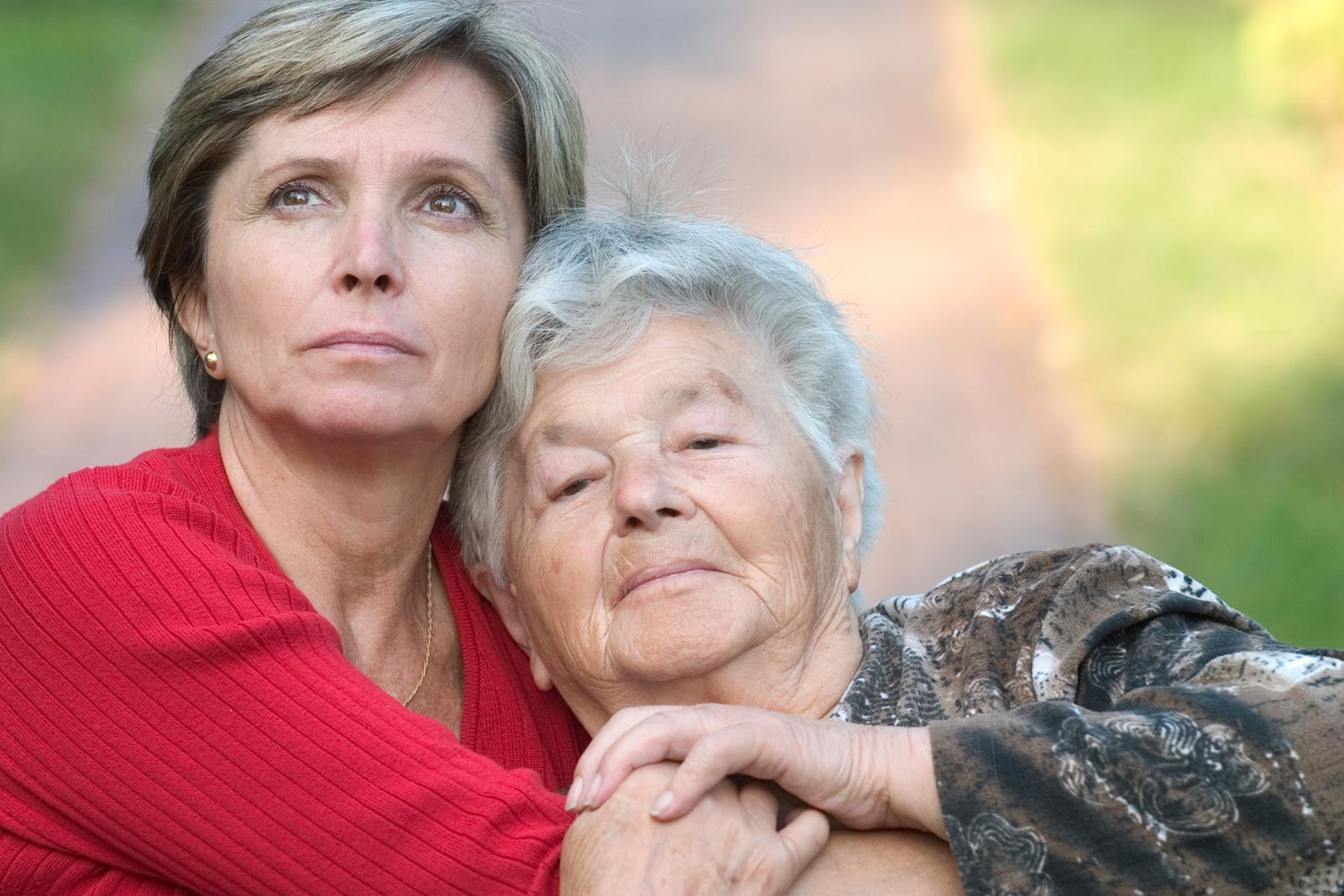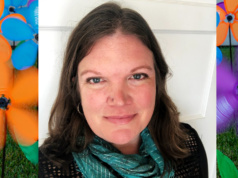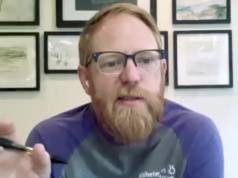This hour with Dementia expert Faith Marshall of Awakenings Hypnosis & Coaching deals with how to communicate with loved ones facing Alzheimer’s and dementia. This segment recaps the previous segments and focuses on how Faith Marshall can help families faced with this situation.
Faith we’ve had an incredible hour talking about you, know, meeting our love ones where they are and how to communicate most effectively. And certainly there’s been so many tips that you’ve given in this hour and we’re really excited to kind of just close this hour up with some really good, solid, just kind of a recap, as well as how you fit into the picture, and you know how you can help families.
I’m going to start the segment because, of course, most of our listeners know that I used to work in with Tony Robbins years and years and years ago. But one of the things that Tony always says is the quality of your life is the quality of your communication. And when you really think about that statement it sounds very trite and funny. But you know it really is true. How are we communicating most effectively and what is our energy? How are we dealing with life and certainly in our best areas, we all have different abilities and different strengths, and some of us are great communicators. Some of us are not so great communicators, but we have to remember that we have to meet our loved ones where they are and faith. You are such a great resource for families, because, obviously you come in and you can kind of observe, obviously the dynamic do you not and how? How do you help families communicate? Thank you so much Suzanne. First, I want to just take off on what you just said about about communication, so we’re used to communicating two way and getting feedback from our. What we’re saying we’re used to visual response to what we’re saying, whereas when you’re dealing with someone who is neuro-cognitive decline, they may not give you that reaction that you’re looking for, and so you start seeking rigor of a two way communication.
So it’s another trick when you’re communicating with someone this way versus how we’re used to communicating like you- and I are just having a conversation here right and if you’re talking to someone and they’re not giving you visual response or they’re, not giving you verbal response. It’s like there’s this filter in the way and the alter is called dementia. But we need to be mindful of that communication and just assume that they’re understanding what we’re saying person centered cares, the focuses on them and all of that and and interpreting that as if it were positive sure not allowing it to shift what we’re trying to say and then and that in itself that communication is truly the key, but now we’re dealing with this. This filter, this green, that’s in the way, and so being mindful of that, and not taking it personally that they’re not responding to me and they’re not smiling back at me, because they just aren’t aware that they’re not smiling right and not taking it personally, and you talked about that with Tony too.
It’s just not not taking it personally, and so I think the person centered care and focusing on them and like we talked about before, is the respect respecting them, assuming that they are interpreting what we’re saying and that it is clear and then responding to whatever happens in the most positive way that you can and and just trusting that they’re they’re in charge. Tthey’re the one leading the show here and you now be on. They may be on a totally different agenda than you intended to, but you’ve got to be able to pivot, and course correct, and the family dynamic is a huge part of this, and that’s where it’s kind of like family counseling, really what what needs to happen is putting yourself aside and putting the putting the patient or the parent or the loved one or the spouse, whatever the case may be first and then, through all of that dynamic of communication and friction and everything, managing your energy and doing what you need to do. Step outside go in the bathroom have a good cry whatever it takes to do.
That shift and to be present in the best way that you can and if you feel yourself going sideways figure out how to take a break figure out how to have someone help you and what you’re saying I rings so true, because I was sharing the story with someone yesterday and I don’t remember who it was now, but one of the things that I talked about yesterday was the fact that I don’t know what I would have done taking care of my mom. Had I not had someone that intervened and helped us come together. My mom had dementia, but my mom and I all of my life were not close at all. I was angry with my mother and I was angry because she was very different than me.
She didn’t acknowledge the things that I was good at right. She was not, and so I had all this baggage about my mother, but there was a major incident in my life that I called for her to come be with me, and she chose to take cert care of somebody else instead and it was probably the biggest tragedy of my life right, and so that was like resentment and anger, and all of those things that I was hanging on to that I didn’t even realize right, and so when we were stuck with each other and when I say that mom was angry, she was angry number one because she didn’t she had to leave her hometown. She didn’t want to be in Seattle right, but that’s where I live, so guess what that’s where she had ended up. Number two was, she was very you know she was scared. She didn’t know anybody. She was in a new place, all of those things and then the third thing was. She did not feel close to me because we had a didn’t, have a good relationship and then the final. What thing was she didn’t want to burn me, which I was going like? What in the world are you talking about so here we were at this impasse with two two women that were very strong it, but in very different ways, but we had somebody like you that came went to us and helped us.
You know when she started to say things she would say to me: Suzanne be quiet and then she brought out what is my mother was trying to say, and vice versa, and what happened was in this early stages. We learned to appreciate each other. We learn to come together. I let go of all of this B s. That was in my the back of my head that I was still angry with her right and it’s like, but you’ve realized those things. When you look at this, how many times does this happen in families? Our our situation was not unusual. You know this happens all the times in families, but I misinterpreted her. She misinterpreted my anger as I was just not at her period, but what it was was that we were to hurt people right, and this is very common in family. So I think one of the things that you can do faith is really come into a situation where you’re seeing things from a completely objective viewpoint, just like the person that worked with US did yeah and- and thank you for US- find that. Thank you for saying that, so I believe in counseling and that’s what coaching is really is listening and hearing and helping them reframe it, and so by being a family coach. It means that I have individual conversations so that there’s someone they can, I’m someone they can trust to vent to to help them getting clarity on it. Just like what you just explained, as well as realizing that they need to empower themselves to know that they’re doing the best that they know how to do right now with given the information that they have and just making it more harmonious is the goal and what I takes. It takes a lot of effort and a lot of co operation for a family M, and it’s just it makes it so much more pleasant and gives so much more peace of mind with knowing what the next step is, because fear kind of creeps in in all of these areas as to what’s next.
You know I’m dealing with this now. This is so hard. It’s only going to get worse, but if you find the next step solution, which might be an inner um care solution with having a caregiver come in four hours on a Wednesday to give you a break, there are solutions that can help with some of this because you feel like you feel like you cannot escape the drama, that’s being presented so finding those escapes through a conversation with a coach and someone that you can trust. You can be completely honest with you, don’t have to hold back how you’re feeling, as the daughter that wasn’t really appreciated by mom and all those you know. Early Childhood stuff sometimes comes up, and then it’s amazing to me that that somebody, like you, okay, the person that we worked with they were able to get to the core issues in like twenty minutes that you’ve been struggling with for decades yeah it’s list, it’s we’re trying to listen and hear for the deep stuff right. I’ve had friends that, like are like. Why do you have to go to the deep and deep end of the pool? It’s like, because that’s how you stop it right, you just not in the shallow, and it was like. You know when I think about that session, that we had and I go. What are you talking about? Mom? You don’t want to burden me. It’s like it is the greatest gift in the world that I get to be with you at the most. You know precious time of your life yeah, it’s an honor, it’s a privilege for me to do this rea and she just looked at me with this. Like are you serious and she was stunned, but you see this is where families come together and she’s angry at the situation, but yeah. I wish the likely person to take it out on, and I was angry back because I didn’t know how to deal with her. So what happened was: was this a miracle healing and at the end of our life? It’s like. I always talked about it.
You know I have an epilogue in my book and I talk about what happened from my my caregiving experience, but one of the things is my mom and I were able to come together even in her state of dimension as she escalated, and I think this is the thing that that understanding number one to become an advocate and to have somebody like you that helps coach families to be that person that we can have this amazingly beautiful outcome at the end of a loved one’s life, and I think that’s both of our goals. Is it not yeah and, and I teach families the tools of using what’s called the Montessori method, where you’re repeating things that you need them, you need to help them. Remember, be it your your daughter’s name is Gen and then flipping it and asking them. What is your daughter’s name and they repeat Gen you go through that repetitive process, just like Montessori kindergarten you’re using that with them to help them recall things that are important, and I’m just excited that I will be graduating as the nightingale dementia consultant, and I will actually be able to help families with the early diagnosis and doing those diagnostic tests to help them define for those people who are curious and don’t know if their love one has dementia helping them. Take those first steps to assessing what stage they might be and and directing them to their physician for all the tools and things that they need as well. So I I will be adding that to my practice, my coaching practice and helping with the patient directly, and I’m just really excited to be able to do that faith.
We are so excited to have had you this hour and certainly to each and every one of you all of face. Information is coming up as, as we conclude this con this podcast, we hope you will reach out to her. You can also find her at AnswersForElders.com under specialists. She is there and we look forward to having you experience such an amazing person that helps us through the times of later life with our live ones. So thanks again, Faith, for being with us.
-Thank you so much Suzanne.
We would like to thank you for joining us in this podcast. Faith is here to support you and your family on this journey. She will help you to come together in harmony, creating the best team and advocating for your loved one’s care, so call Faith at 855-363-2484 four to receive a $200 gift card just by mentioning that you’ve heard these podcasts. Again, that number is 855-363-2484.











